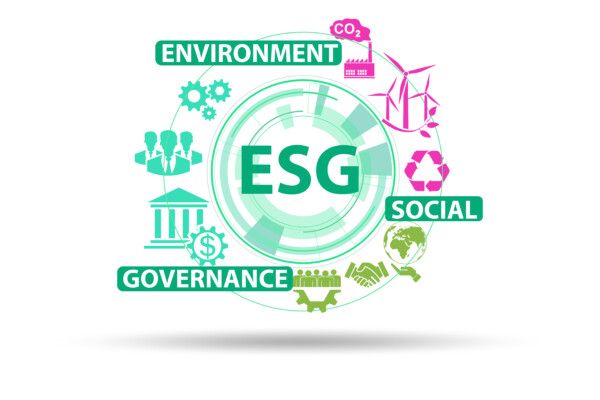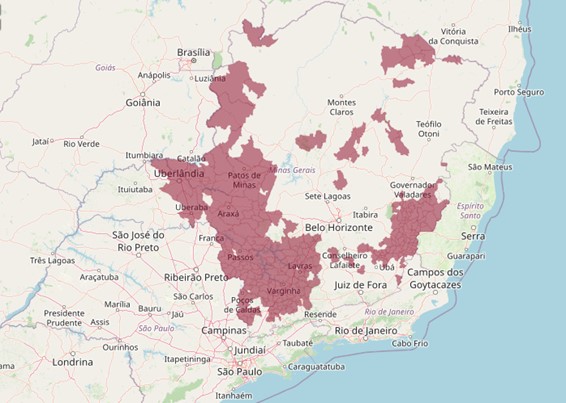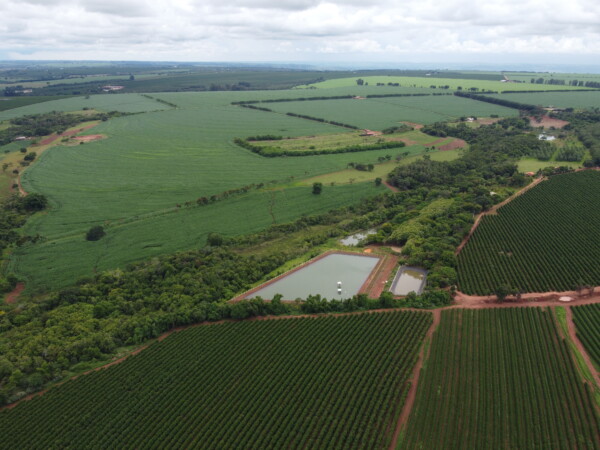
The coffee exporter segment launched strategic projects and engaged in collective initiatives to improve the socio-environmental governance of Brazilian coffee growing.
From the Davos Agenda, in January 2021, to the United Nations Climate Conference (COP26), in November 2021, socio-environmental responsibility was at the center of international debates throughout 2021. The concept of ESG (Environmental, Social, and Governance) has become stronger as an influencer of investment policies and trade relations around the globe.
This new paradigm reflects a change in investor and consumer profiles, which has been accelerated by the Covid-19 pandemic. With the rise of stakeholder capitalism, economic agentes will be increasingly held accountable for the values they deliver to Society and will need to extend their gaze beyond profit to assess resilience, sustainability, and inclusion generated by their businesses.
The year 2021 marked the materialization of this trend with the approval of compulsory due diligence legislation in coffee consuming markets such as Germany and theUnited Kingdom, and the presentation of draft legislation on the subject in the European Union. In this context, traceability will become increasingly important for supply chains.
If on the one hand the demands are growing, there are also opportunities on the horizon. In line with the advances achieved at COP26, with emphasis on the regulation of the international carbon market. There is a tendency to expand the flow of capital to environmentally and socially responsible investments.
The Brazilian agribusiness, especially coffee, has great potential for raising these funds, given the values generated for society, resulting from investments in Research, Development & Innovation (PD&I) and the strict institutional apparatus for environmental preservation and social protection.
By 2021, important regulatory and institutional advances related to agribusiness sustainability have taken place in Brazil, paving the way to attract ESG investments. One example is the Central Bank’s sustainability agenda, which encourages greater alignment of agribusiness with the best international practices, reinforcing the impediments to contracting rural credit for environmental, climate, and social issues, already addressed by strict national legislation.
Under the aspect of productive development, the rural credit policy for the 2021/22 crop year has increased the volume of resources destined to the financing of environmentally responsible practices.
Aligned with the COP26 targets, Brazil launched the Sectoral Plan for Mitigation and Adaptation to Climate Change Aiming at the Consolidation of a Low Carbon Emission Economy in Agriculture for the 2021 to 2030 cycle (ABC+ Plan), encouraging the introduction of more innovative and sustainable technologies in the agribusiness production chains, which remove carbon from the atmosphere.
In the face of growing concerns about climate anomalies, Rural Insurance has advanced significantly in Brazil. Throughout 2021, the Rural Insurance Premium Subsidy Program (PSR) of the Ministry of Agriculture, Livestock and Supply (MAPA) applied BRL 1.18 billion, an amount 34% higher than that of 2020. Approximately 121K rural producers were benefited, 218K policies were taken out, and the total insured area was 14 million hectares, 2.4% higher than the result of 2020. The amount insured in the country reached a record of BRL 68.3 billion last year, an increase of approximately 49.1%.
 In the case of coffee, the PSR played an important role in leveraging rural insurance contracts in 2021, with a subsidy rate of 40%. There were 8.64K policies in Minas Gerais, 2K in Espírito Santo, and 1.4K in São Paulo, totaling about 12 thousand policies in these three states. The insured value was BRL 2.1 billion, which counted with the generation of BRL 57.4 million in total premium, of which BRL22.8 million were paid by the PSR.
In the case of coffee, the PSR played an important role in leveraging rural insurance contracts in 2021, with a subsidy rate of 40%. There were 8.64K policies in Minas Gerais, 2K in Espírito Santo, and 1.4K in São Paulo, totaling about 12 thousand policies in these three states. The insured value was BRL 2.1 billion, which counted with the generation of BRL 57.4 million in total premium, of which BRL22.8 million were paid by the PSR.
The year 2021 also brought important advances in the implementation of the Brazilian Forest Code, with the availability of digital tools associated with remote sensing to speed up the validation of the Rural Environmental Registry (CAR), forest recovery, and the preservation of springs and water courses inside rural properties, aiming at the effective compliance with the environmental legislation in the field.
Seeking to balance the scale between duties and rewards for environmental preservation, CPR Verde (Green Rural Product Bond) was launched. It is a bond that makes viable the payments for environmental services foreseen in the Brazilian Forest Code. CPR Verde connects investors interested in environmental services, such as forest conservation, biodiversity, carbon sequestration, among others, to the rural landowners who provide them, ensuring their well-deserved compensation.
Regarding the promotion of decent work, in 2021 the new Regulatory Norm no31 (NR 31), an important instrument to protect the health and safety of rural workers, came into force. The new regulation brings more legal security to the implementation of labor legislation in the field and innovates by allowing the availability of free tools for small and medium producers to manage rural labor risks.
Social and environmental responsibility was also at the center of the coffee exporter segment’s actions last year. Cecafé, in partnership with its member exporters, launched new projects and engaged in collective action initiatives, in line with the climate, food security and social welfare agendas in vogue in the main international forums.
One of these actions is the Carbon Project, developed under the technical and scientific leadership of Professor Carlos Eduardo Cerri, from the University of São Paulo (USP), and Imaflora. Currently being concluded, the research will generate indicators on carbon captured from the atmosphere and stored in the soil in coffee plantations and in areas of native vegetation preserved, in accordance with the Brazilian Forest Code, in coffee farms in the South, Cerrado and Matas of Minas Gerais.

The Collective Initiative for “Social Well-Being in Brazilian Coffee Farming”, of which Cecafé is one of the coordinators, was consolidated in 2021 and will favor the promotion of decent work and the continuous improvement of the working environment in the coffee sector over the next few years. An important component of this action is the measurement of the decent income of coffee growers, valuing the economic pillar of sustainability.
Another pilar of the export segment’s work is digital inclusion and the training of farmers and rural workers for the development of a more sustainable coffee culture, aligned with food safety standards. In 2021, a distance learning platform project was built under Cecafé’s “Informed Producer” program, in partnership with the Global Coffee Platform, which will support the dissemination of good environmental and social practices in the field, starting with the next coffee crop.
Hence, the coffee exporting segment starts 2022 with a menu of strategic actions that will be reinforced with new projects in the area of traceability and international promotion. Always with a focus on sustainability, so that Brazil can continue to meet, with excellence, the growing global demand for sustainable coffees.
Marcos Matos
CECAFÉ CEO
Silvia Pizzol
CECAFÉ Sustainability Manager


Leave A Comment